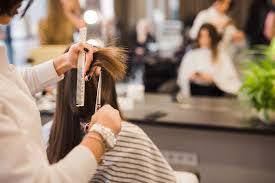In an era where innovation touches every corner of our lives, the hair salon industry is undergoing an impressive digital transformation. What used to be a simple service-based business built on scissors, combs, and creativity is now evolving into a sophisticated ecosystem driven by technology, personalization, and convenience. From smart salon software to augmented reality hair color try-ons, the modern salon experience has become more futuristic—and far more customer-focused—than ever before.
Let’s explore how tech innovations are reshaping the hair salon industry, making it smarter, faster, and more rewarding for both stylists and clients.
1. The Rise of Smart Salon Management Systems
In the past, salon owners relied on paper appointment books, phone calls, and walk-ins. Today, advanced salon management software automates nearly every aspect of daily operations.
Platforms like Fresha, Vagaro, and GlossGenius allow hair salon owners to manage bookings, track customer preferences, process payments, and even handle marketing—all in one place. These systems send automated appointment reminders, reducing no-shows, and sync schedules across multiple devices.
For salon owners, this means smoother workflows and better time management. For clients, it means hassle-free booking experiences available 24/7 through an app or website. The convenience of online scheduling has become a game-changer, allowing customers to book an appointment in seconds without making a phone call.
2. Personalized Experiences Through Data Analytics
Personalization is now the heartbeat of the hair salon industry. Technology enables stylists to gather insights into client preferences, hair types, and product history. With this information, salons can offer customized treatments, tailored recommendations, and more precise color formulations.
For example, digital consultation forms and customer profiles help stylists track everything—from a client’s preferred shampoo brand to their last balayage formula. Data analytics tools can even predict which services clients are likely to book next or when they might need a touch-up.
This level of personalization not only enhances customer satisfaction but also builds stronger client loyalty. When customers feel understood and valued, they’re far more likely to return to the same hair salon again and again.
3. Virtual Hair Consultations and Augmented Reality Try-Ons
One of the most exciting innovations in the salon industry is the integration of augmented reality (AR) and virtual consultations. Many modern hair salon apps now feature AR-powered try-on tools that allow clients to experiment with different hairstyles, lengths, and colors before committing to a change.
Using a smartphone or tablet camera, clients can see how they would look with a platinum blonde pixie cut or rich brunette waves—all in real-time. This technology not only boosts client confidence but also reduces the risk of post-service regret.
Virtual consultations have also become more common, especially since the pandemic. Clients can discuss style goals or hair concerns with their stylist over a video call, helping salons deliver a more personalized experience before the appointment even begins.
4. Smart Tools and Equipment Enhancing Hair Care
The tools of the trade are getting smarter, too. Technology has transformed everyday salon equipment into precision-driven devices that protect hair health while delivering professional results.
For example, intelligent hair dryers like the Dyson Supersonic use heat sensors to regulate temperature and prevent damage, while smart straighteners adjust heat output based on hair type. Advanced color processors ensure even dye application and faster processing times.
Even shampoos and treatments are going high-tech. Brands are developing “smart” haircare systems that analyze hair moisture, pH levels, and texture to recommend customized products. These innovations are redefining what it means to get professional care at a hair salon.
5. Digital Marketing and Social Media Transformation
No modern hair salon can thrive without a strong online presence. Platforms like Instagram, TikTok, and Pinterest have become the new storefronts for showcasing a salon’s creativity and skill.
Stylists use high-resolution before-and-after photos, short-form videos, and tutorials to attract clients and highlight their expertise. Social media not only drives new bookings but also strengthens brand identity and trust.
Salon software often integrates with social media platforms, allowing owners to track which posts convert into appointments or which campaigns drive the most engagement. Paid ads and influencer collaborations have also become powerful tools to reach local audiences and keep the salon’s brand top-of-mind.
6. Artificial Intelligence in the Salon Experience
Artificial Intelligence (AI) is another technology reshaping the hair salon experience. AI-driven chatbots can handle appointment scheduling, answer common client questions, and even recommend products based on a customer’s purchase history.
AI also powers many virtual styling tools. Some systems can scan a client’s facial features and hair texture, then suggest the most flattering styles or cuts using predictive algorithms. This reduces guesswork and empowers both the stylist and the client to make informed decisions.
On the business side, AI helps salon owners analyze sales data, identify peak booking times, and optimize staffing schedules. The result? More efficient operations and improved profitability.
7. Contactless Payments and Cashless Transactions
Convenience and safety have become central to modern service industries, and hair salon businesses are no exception. Contactless payments—via mobile wallets, QR codes, or tap-to-pay terminals—have become the norm.
These payment systems not only speed up checkout but also provide clients with greater comfort and hygiene. Additionally, integrating digital tipping options encourages more customers to show appreciation instantly, improving staff morale.
8. Sustainability Through Tech Innovation
Sustainability is a growing priority among salon owners and clients alike. Technology helps hair salon professionals minimize waste and operate more sustainably.
For instance, eco-friendly salon management software tracks product inventory to reduce overordering and waste. Smart water systems regulate usage during rinsing and washing, conserving water without compromising service quality.
Digital receipts, paperless billing, and refillable product systems further reduce the salon’s environmental footprint. Many forward-thinking salons now promote their eco-initiatives online, appealing to environmentally conscious consumers who value responsible business practices.
9. The Evolution of Training and Education
Technology isn’t just transforming customer experiences—it’s revolutionizing how stylists learn and grow. Online courses, virtual masterclasses, and immersive training apps have made professional development more accessible than ever.
Stylists can now watch live demonstrations, use virtual reality (VR) simulations to practice techniques, or attend global webinars hosted by industry leaders—all without leaving their hair salon. This accessibility ensures that professionals stay ahead of trends and continuously refine their craft.
10. The Future: Smart Salons and Beyond
As technology continues to evolve, the next generation of hair salon experiences will likely include even more automation and personalization. Imagine AI-driven diagnostic scanners that analyze hair damage instantly or smart mirrors that display step-by-step styling tutorials.
The future salon could feature self-service stations where clients use AI-powered devices to test hairstyles or get product recommendations tailored to their scalp health. In short, the hair salon of tomorrow will blend creativity with technology to deliver services that are efficient, customized, and eco-friendly.
Conclusion: Blending Art and Innovation
The essence of hairstyling will always be rooted in artistry and human connection—but technology is amplifying those strengths. The hair salon industry’s evolution proves that innovation doesn’t replace creativity; it enhances it.
From smart booking systems and AR consultations to AI-powered styling tools and sustainable practices, the fusion of tech and beauty is redefining the salon experience for both professionals and clients.
As the digital revolution continues, one thing is certain: stepping into a hair salon will no longer be just about getting a haircut—it will be a seamless, data-driven, and highly personalized experience that reflects the future of beauty and self-expression.



































